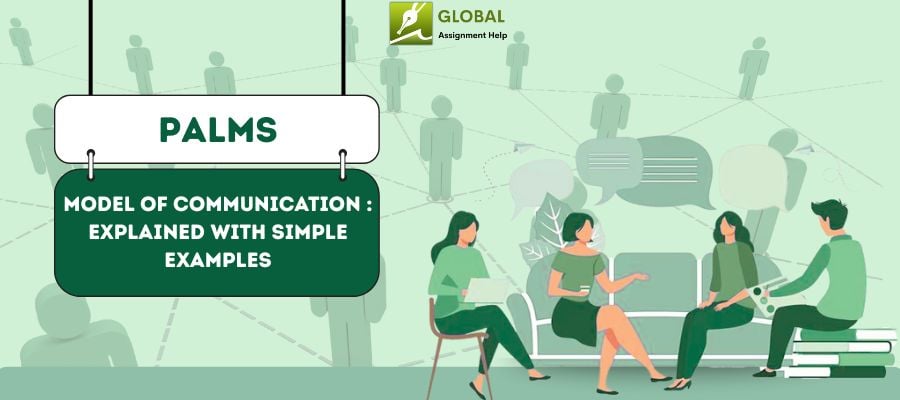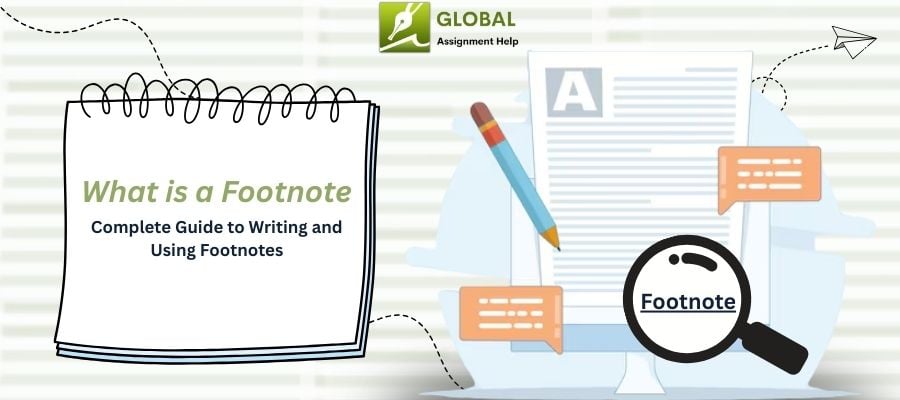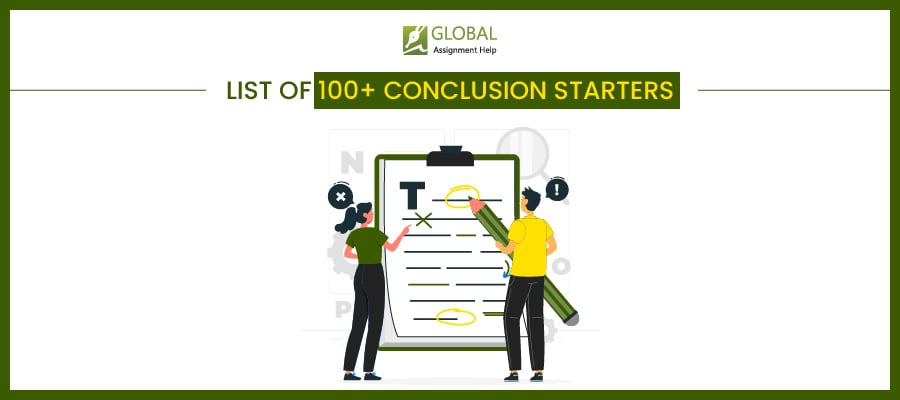Do you know we use colloquialisms every day without even knowing it? They are the informal words and phrases that are basically used in casual communication, often in particular regions or cultures. In this blog, you will see the meaning of colloquialisms and will be offered easy colloquialism examples UK you can use in day-to-day conversation. Also, you will discover 50+ colloquialism examples from everyday phrases to words used in literature, as well as how it is different from slang and jargon. Further, if you are looking for colloquialism meaning and examples or just want to know when to avoid them in academic writing, this blog has got you covered!
Get Help!What Are Colloquialisms?
Did you know that over 40% of the words that you use in day-to-day conversation are colloquialisms? These informal words make your communication more natural and relatable, which reflects how you connect with people on a daily basis. A colloquialism is an informal word or phrase used in daily conversation, not usually in formal writing. Also, these expressions vary by region, culture and more.
Further, in a colloquial writing style guide, the primary focus is to maintain the casual tone, which makes your writing feel more like a conversation with your reader. It can help you talk with the audience, mainly in blogs, social media or marketing content. But be careful, using colloquialisms in the wrong way can lead to inappropriate colloquialism examples. So, it's vital for you to know when and where they are best used. So, it's vital for you to know when and where they are best used, especially when blending conversational phrasing with compound words.
List of 50+ Colloquial Words Examples
In this section, you will discover 50+ colloquialism examples from literature to everyday items and phrases. Also, we will discuss how colloquial language in an academic essay must be ignored for clarity and formality.
Examples of Colloquialism in Literature
Colloquialisms are a key part of day-to-day communication, but they often make characters in literature feel more relatable. Below are some modern colloquialisms in literature with their meaning.
|
Examples |
Meaning |
|
Gonna |
Informal way of saying "going to" |
|
Y'all |
Informal plural form of "you all" |
|
Ain't |
Short form of "am not", "is not", "are not" |
|
Gimme |
Informal way of saying "give me" |
|
Yup |
Informal way of saying "yes" |
|
Better |
Used to suggest someone should do something |
|
C'mon |
Informal way of saying "come on" |
|
Lot |
A large amount of something |
|
Don'tcha |
Informal way of saying "don't you" |
|
Slay |
To do something exceptionally well |
These colloquialisms are normally used in literature to add personality and a sense of realism in characters.
Examples of Colloquialisms for Everyday Talks
Colloquialism are commonly used in daily talks to make conversation sound more casual and familiar. Below are some of the latest and trending colloquialism used in daily talks.
|
Examples |
Meaning |
|
Vibe |
Feeling or atmosphere of a place or situation |
|
Bet |
Expression of agreement or confidence |
|
Ghosting |
Suddenly cutting of contact of disappearing |
|
Slaps |
Something too good or impressive |
|
Savage |
Bold, fierce or ruthless |
|
Clout |
Influence or power, mainly in social media |
|
Drip |
Stylish or fashionable appearance |
|
Squad |
Group of friends or companies |
|
Stan |
To be a big fan or supporter |
|
Finesse |
To handle or manage a situation skillfully |
These are some common colloquial phrased used in daily life and are trending in modern conversations on often appear on social media.
Examples of Colloquialisms for People
In casual communication, colloquialisms are basically used to refer to people in an informal way or familiar way. Here are some colloquial expressions for people and their meaning.
|
Examples |
Meaning |
|
Bro |
Informal term for brother or close friend |
|
Sis |
Informal term for sister or close friend |
|
Homie |
Close friendly, mainly from urban slang |
|
Dude |
Informal term of a person, especially male |
|
Yank |
Informal term for an American (Mostly used in UK) |
|
Peep |
Informal term for a person, basically a friend |
|
Jock |
Person who is athletic, often used in high school climate |
|
Geek |
Intellectual or tech-obsessed person |
|
Rockstar |
Someone who is skilled or admired in their field |
|
Broski |
Term used for a close male friend |
These are some colloquial terms for people to add a level of familiarity and friendliness.
Examples of Colloquial Words
Here are some colloquial words that have become widely accepted in informal speech, assisting conversation feel more friendly and personal.
|
Examples |
Meaning |
|
Broke |
Lacking money or resources |
|
Hang out |
To spend time together in a relaxed way |
|
Chill |
To relax or calm down |
|
Gotcha |
Informal of saying "got you" or "understood" |
|
Kinda |
Short form of "kind of" |
|
FOMO |
Fear of missing out |
|
Lit |
Amazing, exciting or fun |
|
Fam |
Informal term for family or close friends |
|
Bummer |
Something disappointed or unlucky |
|
Bling |
Flashy jewelry or accessories |
These colloquial words make language sound more conversational and less formal which shows how people talk in casual or social contexts.
Examples of Common Colloquial Phrases
Colloquial phrases aid make conversation feel natural and are more commonly used in everyday talks. Here are some common colloquial phrases that are popular right now.
|
Examples |
Meaning |
|
What's up? |
A casual greeting, asking how someone is |
|
No worries |
Expression meaning "it's okay" or "don't worry" |
|
Take it easy |
Relax, calm down |
|
Catch you later |
See you later |
|
Hit the road |
To leave or start journey |
|
In a jiffy |
Very soon or quickly |
|
Piece of cake |
Something very easy to do |
|
Under the weather |
Not feeling well |
|
Break a leg |
Wishing someone good luck |
|
The ball's in your court |
The next move is yours |
These colloquial phrases used in daily life capture the way people speak in relaxed, informal climate.
Examples of Colloquial Idioms
Idioms are a fun part of colloquial language, often carrying meaning beyond their literal words. Below are some colloquial idioms used in modern speech.
|
Examples |
Meaning |
|
Burn the midnight oil |
To stay up late working or studying |
|
Let the cat out of the bag |
To reveal a secret |
|
Kick the bucket |
To die |
|
Cry over spilled milk |
To be upset about something that can not be changed |
|
Cut to the chase |
Get to the point, skip unnecessary facts |
|
Break the ice |
To begin a conversation or ease tension |
|
By the skin of your teeth |
To barely succeed or escape from danger |
|
A penny for your thoughts |
Asking someone what are they thinking |
|
Hit the nail on the head |
To be exactly correct or precise |
|
The early bird catches the worm |
Success comes to those who act early |
The colloquial idioms aid make language more colourful and expressive.
When to Avoid Colloquialisms in Academic Writing
As you know, colloquialisms are informal expressions basically used in daily conversation, but they are not suitable for academic writing, as they require clarity and precision.
Here's how you should avoid using colloquialisms in academic writing:
Professional and Academic Tone
Academic writing needs a formal tone. Colloquialisms such as "gonna or "wanna" can make writing too casual. So, avoid slang and colloquialisms when focusing on complex or serious issues. For instance, say "the research will demonstrate that" instead of "the research is gonna show that".
When Explaining Complex Topics
Academic writing needs to explain academic ideas or theories. Colloquialisms such as "kick the bucket" can confuse the reader. So, if you're working with academic writing, aim for precision. For instance, use "This theory accurately addresses the key issue" instead of "The theory hits the nail on the head".
In Research or Thesis
When working on a research paper or thesis, your work must show your knowledge of the topics in an academic way. Phrases such as "no biggie" undermine the standards required in these contexts. For instance, you can say "The results are not significant" Rather than "The results are no biggie".
When Citing Sources
When you are referencing academic sources, the language that you use must match the seriousness of the material. For example, you can use "This study supports the findings of this paper" instead of "This study backs me up".
To Maintain Objectivity
Colloquialisms can reflect personal opinions or bias, which can hinder the tone needed in academic writing. For example, you can replace "I'm totally sure" with "The evidence suggests" to be clearer and precise.
In professional Presentations
If you want to present your work in a professional setting, you must avoid colloquialisms to make sure that your presentations maintain a serious and reliable tone. For instance, "You know, I just feel like this point is really vital" must be replaced with "This point is crucial to the overall argument".
Overall, colloquialism examples sentences such as "I'm gonna do this or more must be replaced with formal sentences in academic writing to maintain clarity and professionalism, mainly when working on an academic task or seeking support from our assignment writing services to assist you in producing polished work.
Colloquialisms, Slang, and Jargon: What's the Difference?
Here's a clear comparison of colloquialisms, slang and jargon to help you know how they differ in language use:
|
Aspect |
Colloquialisms |
Slang |
Jargon |
|
Definition |
Informal expression used in casual communication. |
Informal words used by particular groups or cultures. |
Specialized language by a particular profession, field or group. |
|
Formality |
Casual, but not necessarily overly informal. |
Very informal and specific to certain social groups. |
Very particular and often formal within a profession. |
|
Audience |
General public or wider audience. |
Basically used by certain social groups or religions. |
Used by professionals in a specific field. |
|
Usage Context |
Everyday communication, literature and media. |
Casual setting, online conversation and youth culture. |
Professional, academic and technical settings. |
|
Examples |
"Gonna" (going to), "Y'all" (you all) and more. |
"Lit" (Exciting or good), "FOMO" (fear of missing out) and more. |
"ROI" (return on investment), "HTTP" (HyperText Transfer Protocol) and more. |
|
Intelligibility |
Understandable by various people, though sometimes region-specific. |
Can be confusing for those outside the group. |
Can be unclear to those outside the particular field. |
|
Tendency to Change |
Changes slowly over time, often regional. |
Regular changes, particularly with youth culture and trends. |
Slow changes and its often more stable in its usage. |
|
Examples in Writing |
Common in personal essays, fiction and dialogue. |
Used in formal writing, more common in blogs, social media and casual articles. |
Common in research papers or industry reports. |
|
Formality in Academic Writing |
Usually avoided in formal academic writing. |
Strongly avoided in formal and academic areas. |
Sometimes used in technical or scientific writing but usually avoided in general academic papers. |
Learning the difference between these three aids you in selecting the right language for your writing or speaking context, especially in a professional or academic climate.
Order Today!Key Takeaways
- Colloquialisms are informal expressions that assist you in crafting a relaxed, conversational tone. They are commonly used in everyday conversation to convey familiarity.
- These expressions are basically common in literature, where their primary aim is to make characters and dialogue feel more real.
- Colloquialisms for day-to-day items and people are used to ease communication and built it to feel more natural, such as by using "gonna" instead of "going to" and many more.
- Some of the common colloquial phrases are "What's up?", "Catch you later" and more are ways to greet in a casual climate.
- It's vital to know the difference between colloquialisms, slang and jargon. On the other hand, colloquialisms are informal and widely understood, slang is often particular, and jargon is basically more technical, used by experts in specific fields.
- In academic writing, colloquialisms must be avoided to maintain a professional and formal tone.
- The use of colloquialisms must be attentive to the audience. In informal settings, they can improve reliability, but in formal settings, they may lessen clarity.
Frequently Asked Questions
Q1. Can colloquialisms be used in formal writing?
Ans. Colloquialisms must be avoided in formal settings such as academic papers, business reports or professional conversations. They can craft your writing to sound too casual and formal, clear and precise and most vital.
Q2. What is the difference between colloquial language and formal language?
Ans. Colloquial language is informal and basically used in casual communication or personal writing. On the other hand, formal language is organised, clear and used in professional and official contexts.
Q3. Are there any negative effects of using colloquialisms in academic writing?
Ans. Yes, using colloquialisms in academic writing can undermine the seriousness and professionalism of your work. They can craft your arguments to seem less credible or confuse readers unfamiliar with the terms.
Q4. What are some examples of colloquial idioms?
Ans. Colloquial idioms such as "break the ice" (to start the conversation), "hit the nail on the head" (to be exactly right) are more widely used in informal contexts. Further, if you need expert assistance with academic writing, consider Global Assignment Help to avoid using colloquialisms in formal tasks.
Q5. What is the role of colloquialisms in social media?
Ans. Colloquialisms play a vital role in social media by crafting posts that feel more personal and engaging. Also, they aid you in creating a casual, relatable tone and allow users to connect with others faster.
Q6. Can colloquialisms reflect cultural identity?
Ans. Yes, it often reflects cultural and regional identities. Also, they can show where someone is from or which social group they belong to
Free Tools

Easy to Use Paraphrasing Tool to Simplify Complex Academic Writing
Check Now
Get Structured Outline by Professionals for Your Dissertation
Check Now
Effortlessly manage citations and references with our smart referencing tool
Check NowPrice Calculator
- Plagiarism
- Pricing
- Order Now
- Call Back
- Live Chat

Limited Time Offer
Exclusive Library Membership + Free 300$ Wallet Balance

Get $300 Now
Update your Number





























Thank you for submitting your comment on this blog. It is under approval. We will carefully review your submission and post it on the website.